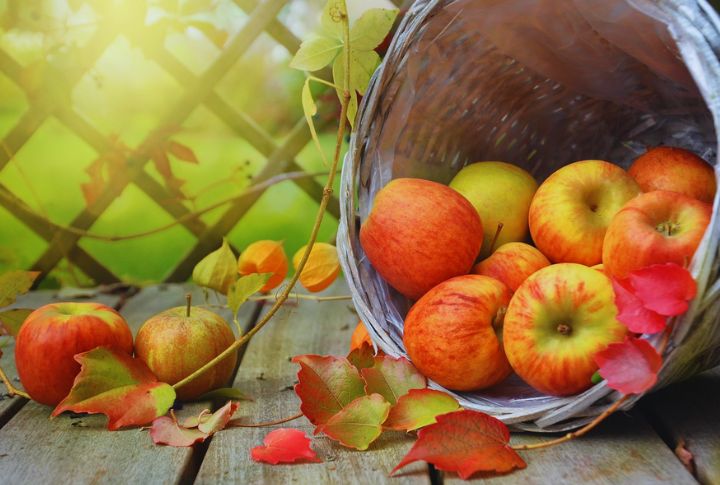
Fruits offer more than just a delicious taste—they pack powerful health benefits. Regularly enjoying the right mix of fruits can be as effective as many over-the-counter supplements, but without the artificial additives. Packed with essential nutrients, they help boost the immune system and protect against various illnesses. Explore 20 types of fruit that can heal and keep you feeling your best.
Apples

Apples are a staple in many diets due to their impressive nutritional profile. Rich in dietary fiber, particularly pectin, they help improve digestion and regulate blood sugar levels. The fruit also contains antioxidants, including flavonoids, which help combat oxidative stress. Consuming apples regularly may lower the risk of heart disease by reducing cholesterol levels.
Oranges

Described as a powerhouse of vitamin C, oranges equip the immune system and promote collagen production for skin elasticity. These citrus fruits are also packed with flavonoids, which have anti-inflammatory and antioxidant properties and protect the body from chronic diseases. Low in calories and high in water content, they hydrate the body and are a satisfying snack.
Blueberries

Blueberries are often called “superfoods” due to their antioxidant richness, particularly anthocyanins. These antioxidants minimize the effects of aging on the brain and protect against cognitive decline. Consuming blueberries may also lower blood pressure, promote good digestion, and support gut health. As a good source of vitamin C, they boost immunity and aid in skin health.
Bananas

Known for being rich in potassium, bananas are essential for sustaining healthy blood pressure and heart function. Their high fiber content regulates digestion and supports a healthy gut microbiome. Additionally, they contain vitamin B6 and help boost serotonin levels, improving mood and sleep quality. Bananas also provide natural sugars, offering a quick energy boost.
Pineapples

Beyond their delicious taste, pineapples contain vitamin C, manganese, and fiber. Bromelain, one of its constituents, is an enzyme that boosts digestion by breaking down proteins and promoting better nutrient absorption. Additionally, Bromelain has anti-inflammatory properties, potentially reducing symptoms of arthritis and other inflammatory conditions. Pineapples’ high vitamin C content boosts the immune system and promotes collagen production.
Strawberries

With plenty of vitamin C, strawberries help strengthen immune health and support collagen for skin elasticity. They’re packed with anthocyanins and ellagic acid, antioxidants that reduce inflammation and protect the heart. Low in calories and high in fiber, strawberries are ideal for promoting digestive health and supporting weight management.
Papayas
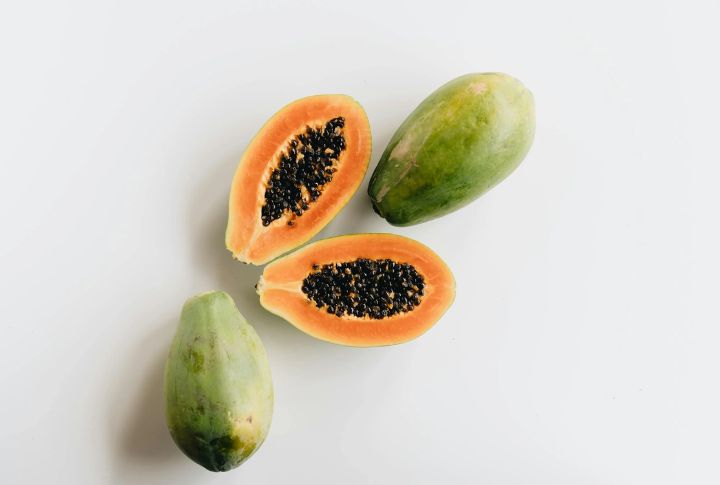
Papayas contain vitamin C, an essential nutrient for immune function and skin health. The fruit also contains the enzyme papain, which supports digestion by breaking down proteins. Another benefit of papayas is that they are rich in beta-carotene, a substance that can be converted to vitamin A. Several antioxidants in papayas may help reduce the risk of prostate cancer.
Kiwis
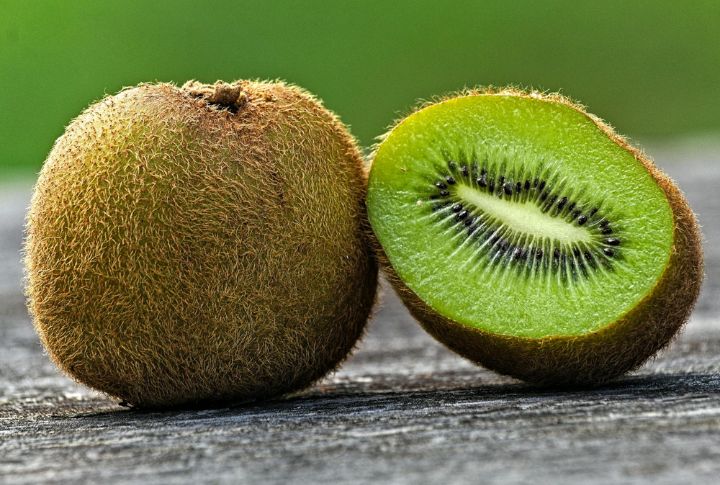
Anyone seeking to boost their immune system should consume sufficient amounts of Kiwi. Packed with vitamin C, the fruit contains a significant dietary fiber, supporting digestive health. Vitamin E and polyphenols, also constituents of kiwis, decrease inflammation in the body. Kiwis are rich in potassium and may improve heart health.
Cherries

These are rich in antioxidants, like anthocyanins and quercetin, which have anti-cancer properties. Cherries supply sufficient vitamin C to promote collagen production for healthy skin. Melatonin, a hormone responsible for ensuring healthy sleep patterns, is another important constituent of cherries. Consuming cherries has been found to help reduce muscle soreness for athletes.
Avocados
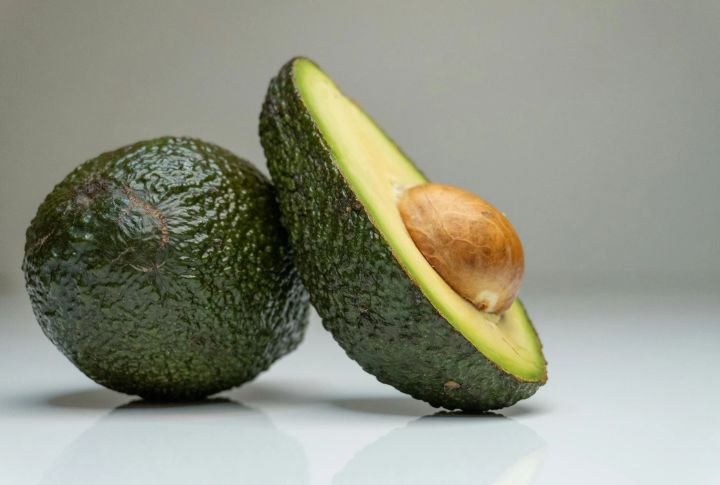
Avocados offer a wealth of healthy fats, which benefit your heart health. They’re also high in fiber, supporting digestion and helping you feel fuller for longer. This fruit provides a rich amount of folate, key for cell growth and development, especially during pregnancy. Plus, the potassium in avocados helps regulate blood pressure and promotes healthy muscle development.
Pomegranates

Punicalagins, a healthy antioxidant found in pomegranates, combat inflammation and protect cells from oxidative damage. Pomegranates supply vitamin C in rich amounts and contain high levels of polyphenols, which protect against heart disease. Regular consumption of pomegranates may improve cognitive function, memory, and gut health.
Watermelons
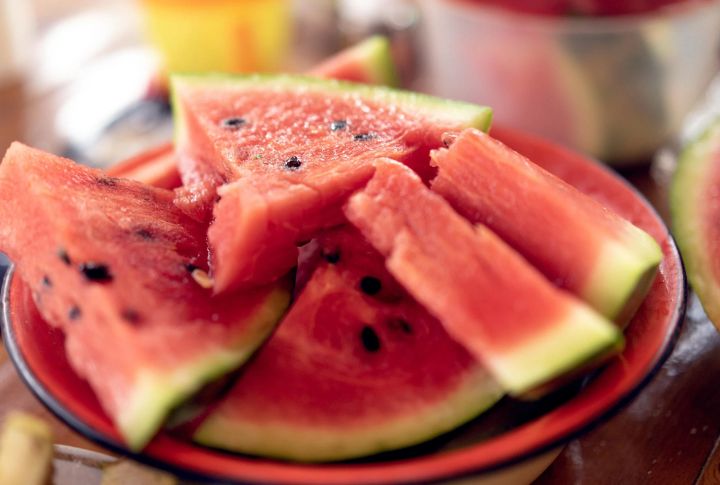
Because of their high water content, watermelons keep you hydrated and refreshed, especially during hot weather. They are rich in lycopene, an antioxidant that can reduce the risk of prostate cancer. Moreover, watermelons contain citrulline, an amino acid that improves blood flow and reduces muscle soreness. Their vitamin C composition supports immune function and skin health.
Mangoes
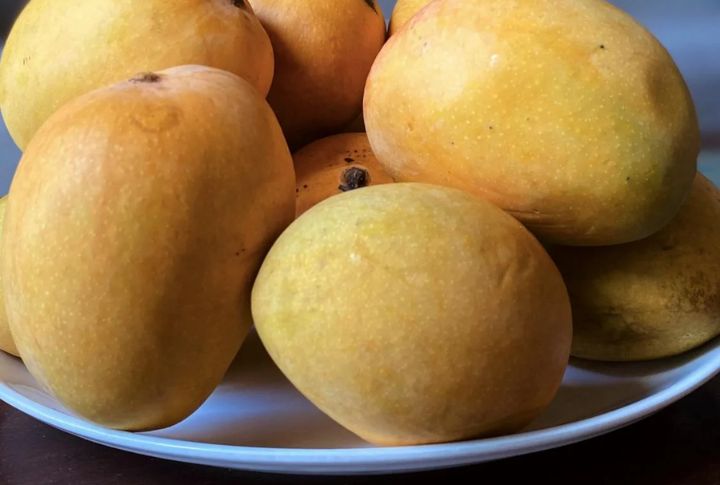
Mangoes supply vitamin C, which supports immune health, and vitamin A, essential for eye health. The fruit is packed with quercetin and beta-carotene, two antioxidants that help protect the body from oxidative stress and inflammation. Mangoes also contain fiber, and their high potassium content regulates blood pressure and enhances cardiovascular well-being.
Grapefruits
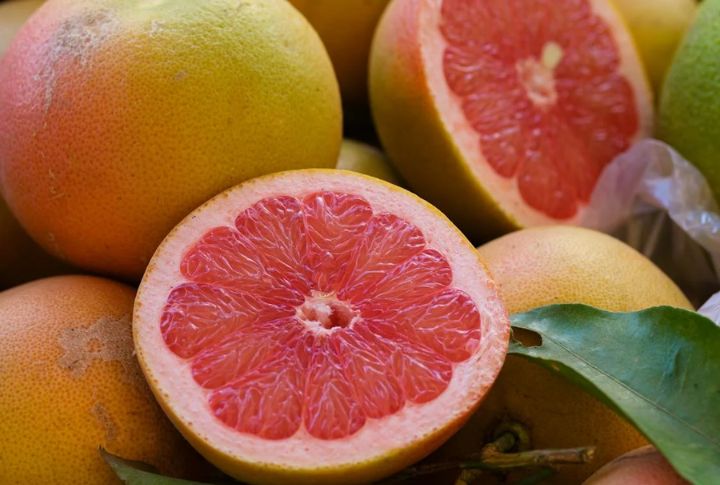
Like oranges, grapefruits are a good source of vitamin C. Rich in antioxidants, like flavonoids, they have been shown to reduce inflammation. Grapefruits’ high fiber content regulates blood sugar levels. They also reduce cholesterol levels and improve blood pressure, reducing the risk of cardiovascular disease. Grapefruit’s low glycemic index makes it a good choice for people with diabetes.
Guavas
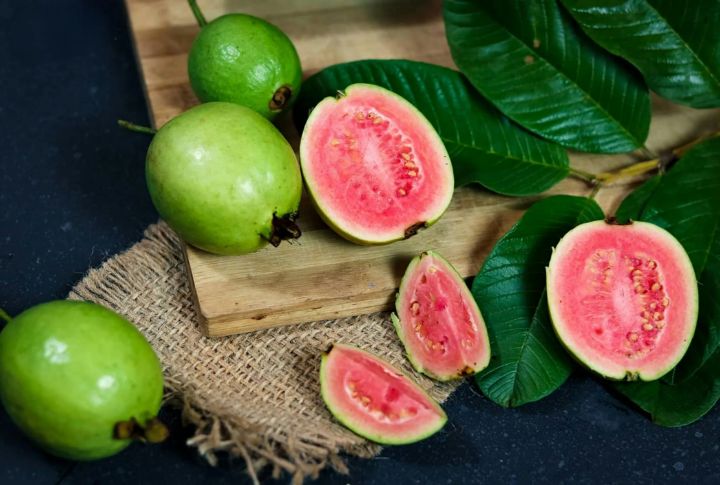
Guavas are incredibly nutrient-dense, supporting immune health and promoting healthy skin. They are also rich in fiber, which supports a healthy gut microbiome. Antioxidants, including carotenoids and polyphenols, are found in guavas and help combat oxidative stress. Additionally, guavas help regulate blood pressure and lower blood sugar levels in the body while minimizing the risk of diabetes.
Raspberries

The low glycemic index of raspberry makes the fruit suitable for people managing diabetes. Its antioxidants have also been linked to anti-cancer properties, especially for combating mammary and colon cancer. Raspberries contain ellagic acid and quercetin, which help fight against oxidative stress. They may reduce the risk of heart disease by improving cholesterol levels and blood pressure.
Dragon Fruits
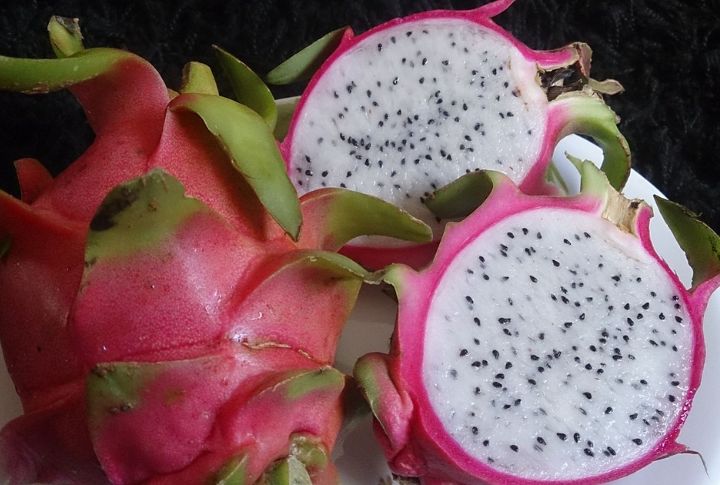
Dragon fruit, also known as pitaya, is a vibrant fruit rich in antioxidants, which help protect the body from free radical damage. It is a good source of fiber, promoting digestive health and supporting healthy gut bacteria. The fruit also contains several beneficial plant compounds, including betalains and flavonoids, which have anti-inflammatory properties.
Plums

The potassium in plums helps balance fluids in the body. It has been suggested that plums may have anti-cancer properties, particularly in preventing colon cancer. Plums also contain compounds that may help improve bone density, making them beneficial for overall skeletal health. Their antioxidants, like anthocyanins and flavonoids, protect the body from oxidative stress.
Figs
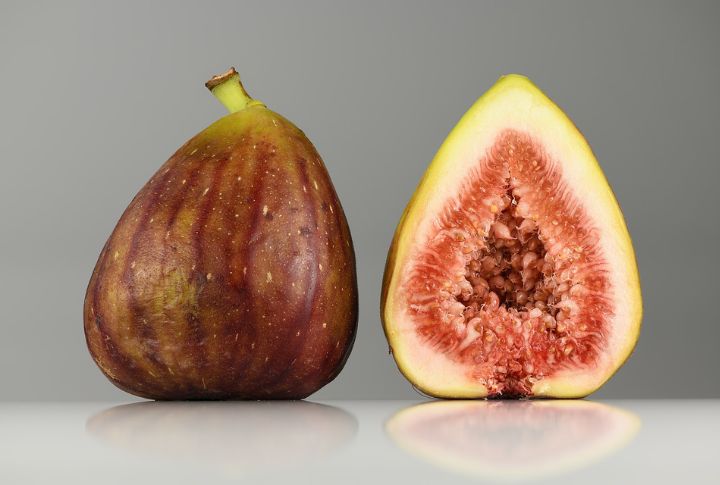
Because of their rich fiber content, figs support digestive health and regulate blood sugar levels. They are also high in antioxidants, like polyphenols, and contain minerals like potassium, which control blood pressure and support heart function. Figs also supply vitamin K, which is essential for bone health and wound healing. Traditionally, they’ve been used to relieve constipation.
Cantaloupes
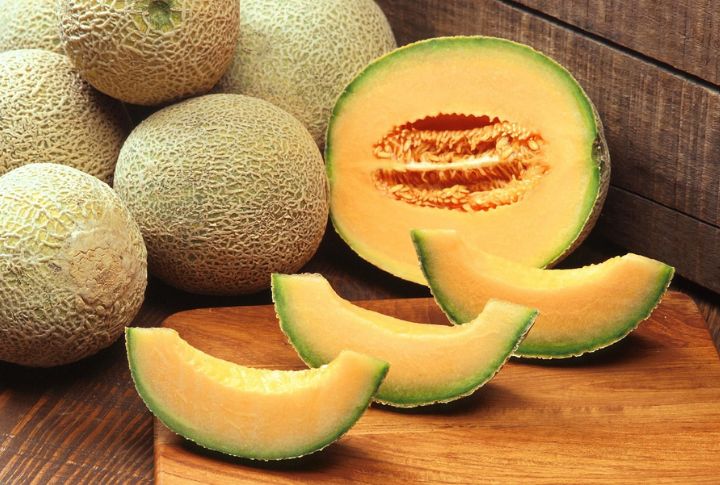
Cantaloupes are an important source of vitamins A and C, which support immune health, skin health, and vision. Their high water content makes them a hydrating fruit, ideal for replenishing fluids during hot weather. They are a good source of antioxidants, including beta-carotene, and are rich in potassium. Cantaloupes’s high fiber content regulates bowel movements.
Leave a comment